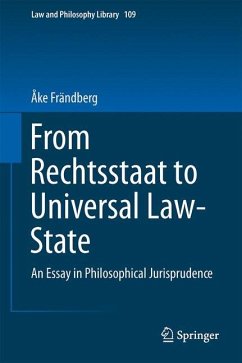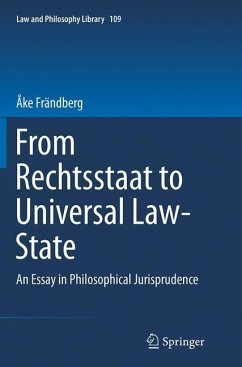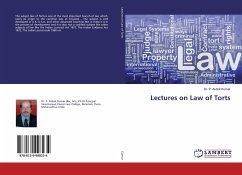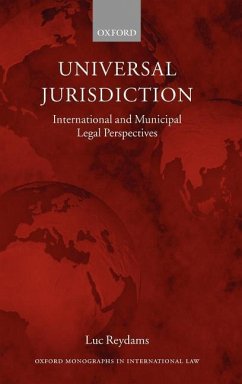
(Uneasy Universal Lectures) American Cold Turkey
TO WHOM - IF NOT MR "RECEP TAYYIP ERDOGAN" - PEACE MAY CONCERN
Versandkostenfrei!
Versandfertig in 6-10 Tagen
69,96 €
inkl. MwSt.

PAYBACK Punkte
0 °P sammeln!
The original human being isn't just "overhauled", i. e., reconditioned but rather openly, i. e., officially and obstructively "replaced by a completely different cast bearing a mark of shame". One proclaims, "now it turns out, the one blamed has been 'quite different' from the beginning". The denouncer's accusatory proceedings virtually emulate a transformation of his counterparty's truthful character into a morally reprehensible one. Literally, "the person concerned" is not just to become an 'object' but an entirely "new 'thing' in the eyes of his accusatory beholders". (..)If the indictment ...
The original human being isn't just "overhauled", i. e., reconditioned but rather openly, i. e., officially and obstructively "replaced by a completely different cast bearing a mark of shame". One proclaims, "now it turns out, the one blamed has been 'quite different' from the beginning". The denouncer's accusatory proceedings virtually emulate a transformation of his counterparty's truthful character into a morally reprehensible one. Literally, "the person concerned" is not just to become an 'object' but an entirely "new 'thing' in the eyes of his accusatory beholders". (..)If the indictment was to be absolutely effective, the according scheme should not permit the society of public bystanders, panel of selectees or committee of jurors to choose their positions at will. Instead, the prosecutor's optional choices are solely to hint at the one and only preferrable alternative in terms of the prosecutor's "'morally required' verdict".Publicly, the prosecutor's individual performance and personal presentation is to synchronise with his course of accusational proceedings - not in the sense of a private individual - but by means of priming the public to be viewing him as a "publicly known" and "honourable person" bearing the people's, i. e., the "nation's power of attorney". In this unique context of "moral authority", the arraigner assumes a "chief prosecutor's", i. e., "state attorney's" mandate on "rightfully and justifiably operating in the people's name".At last, the "wicked 'thing'" is to be ritually removed from his place in a legitimate order, i.e., 'it' must be defined as if "'it' could've never fitted society". Particularly, courts and their officials own somewhat of a monopoly over such ceremonies of degradation infamously labelled "show trials" having also become a doubtful, professional as much as a political routine in democratic, pseudo-democratic and explicitly totalitarian countries.(H. Garfinkel, Deviant Behaviour & Social Response)












